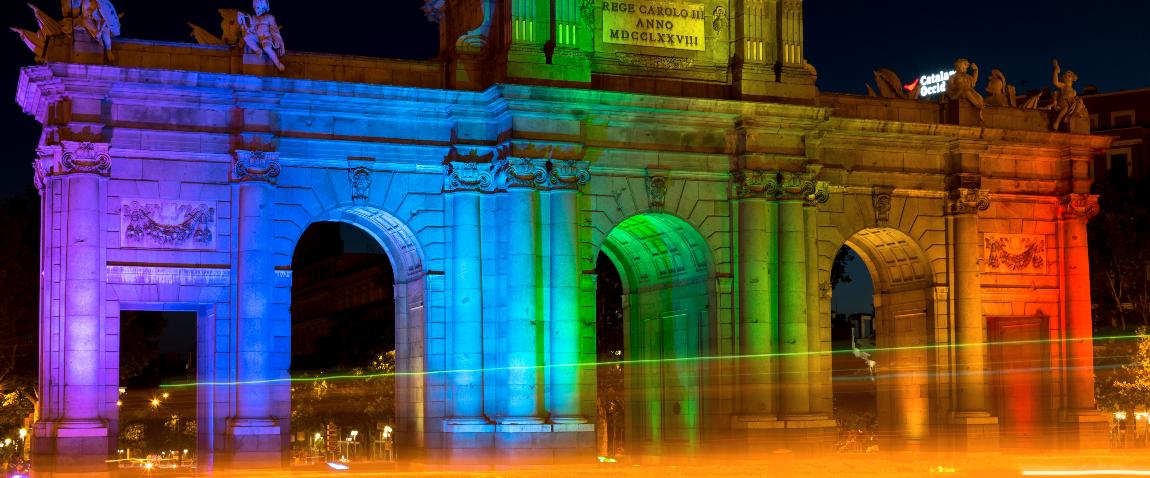
Spain is a land of colours of all hues. It is one of the oft-visited tourist countries that has earned a rightful place in the heart of most travellers. However, it is pertinent to know and understand the country's customs one visits as new visitors. Every country is different from the other on account of its past, though it seems the aspirations and dreams of its people are similar.
In this article, we talk about the 10 Spanish festivals one should know about.
Spain is a country with a unique set of festivals. They range from religious ones to quirkier ones, which involve food and fun. The festivals are interspersed with decorations, music, song and dance, spectacular processions, and performances, all perfected with dazzling fireworks and costumes. These are also the festivals which allow both the locals and the visitors with an opportunity to party. These Spanish festivals are also quite famous for their food and drink, especially the Spanish music festivals where many instruments can be seen. Spanish music festivals are also some of the most visited ones in the world.
In this article, we talk about the 10 Spanish Festivals.
Carnival at Tenerife

The carnival is one of the most famous Spanish festivals. It is also a part of the list of Spanish music festivals. It has all the ingredients of a flashy party, rife with blasting music, colourful dresses, street parades, and outrageous parties. It takes place in February and March, and the locals go all out in celebrating it since it comes before a long period of abstinence and self-reflection. The best place to celebrate the carnival is the Santa Cruz de Tenerife. Given the sheer excitement attached to this event, it is indeed the numero uno on the list of Spanish festivals. Entierro de la Sardina (Sardine's Burial) is one of the carnival highlights. Of all the Spanish cultural festivals, the carnival attracts the maximum viewership and participants. The Entierro de la Sardina (Sardine's Burial) is where the mourners carry an effigy of a Sardine. It is then set to fire to mark the end of the festival. The carnival symbolizes the karmic cycle of death and life in a more lighthearted vein, filled with fun and joy.
Fallas Festival in Valencia

The Fallas festival in Valencia is another extravagant celebration that takes place in Valencia. After the carnival, this is amongst the most popular Spanish holidays and festivals. The Falls Festival is part of the Spanish culture festivals though it can also be bracketed with the Spanish music festivals. The entire event lasts for a week and has a host of activities like street parades, paella contests, beauty pageants, marching bands, and costume shows. The shows start at 8 am with the fireworks taking place at 2 pm every day. The entire city of Valencia is filled with giant puppets, which are finally burned on the final day.
Semanta Santa in Seville
The Semanta Santa taking place in Seville is a more sombre affair since this is a religious festival, unlike the previously mentioned Spanish culture festivals. It happens in mid-April and lasts for a week. It is also known as the holy week. It is represented by the fraternities or all the prominent churches that wear hooded costumes and parade through the streets of Seville, carrying their patron saints. There are other processions, too, where participants carry Mary and Christ.
Festival de los Patios in Cordoba

Keeping up with the quirkiness of the Spanish festivals, this one is for nature lovers, where well-decorated patios in the city of Cordoba are celebrated. It also includes floral gardens and Andalusian courtyards. The entire event lasts 12 days and happens in early May. It is also among the more popular Spanish holidays and festivals and is a haven for photographers from all over the planet. A visit to the Viana Museum is a must since it is here one can see the best patios. The Festival de Los Patios is amongst the best of Spanish music festivals since a lot of it will be flowing across the city. There are flamenco dances to cherish too.
La Battalla del Vino in Haro

It is the place and time to get soaked in the best thing for wine lovers. The festival means the wine battle, and as a visitor, one will experience the best Spanish wine. From early morning participants and visitors alike appear at the main town square called the Plaza de la Pa, dressed in whites with a red handkerchief around their neck. The festival ends with a lavish food fair. The La Batalla happens every year between the 27th and the 29th of June. Check requirements for Spain visa for your nationality and make this dream trip possible!
Pride Week in Madrid

It is an event for the celebration of the LGBTQ community across the globe. While some similar parades and festivals happen in many cities across the countries and continents, the one in Madrid is said to be the best of all. Held in June or July, Pride week is filled with colourful marches, music, and food. The epicentre of pride week in Madrid is the Chueca neighbourhood. Thousands of participants turn up at this event, and Pride Week is considered the best Spanish festival.
La Tomatina in Bunol

Throwing tomatoes has never been so fun. To believe it or even be a part of it, one must visit Bunol on the last Wednesday of August. The Tomatina or the tomato battle is the last weeklong celebration held in honour of patron saints Luis Bertran and the Mare de Deu dels Desemparats. The hour-long battle is where people throw tomatoes at each other at Plaza del Pueblo. There is also a competition where participants will climb a greased pole to win a steaked ham. The entry is limited to 20000 participants, and there are tickets one has to buy to be a part of it. Among the Spanish festival's list, the La Tomatina in Bunol happens to be the most fun-filled one.
Fiesta Mayor de Gracia in Barcelona
One of the most popular Spanish music festivals and a famous Spanish festival by its right, the Fiesta Mayor de Gracia, Spanish acrobats show their skills.
The Fiesta Mayor de Gracia
It takes place between the 15th and 21st of August and has day-long family activities. There are plenty of games on offer, making it one of the most awaited on the list of Spanish festivals. Spanish culture festivals and Spanish music festivals are some of the liveliest festivals globally, and the Fiesta Mayor de Gracia epitomizes that.
Boloencierro in Madrid
It is the safer alternative to the bull run, with participants running after a ball. The encierro or the bull run has had its fair share of criticism, which is why a safer alternative was created. The gigantic ball weighs over 150 kgs and is made of polystyrene. There are vantage points too, where one can watch the entire race. However, you should be careful of the falls since thousands of participants will run in narrow lanes. The Boloencierro is celebrated every august in Matelpino, a mountain village situated 50 km northwest of Madrid.
The Boloencierro is one of the highlights in the list of Spanish festivals and Spanish holidays and festivals.
Feste de la Merce in Barcelona

It is one of the largest festivals in Barcelona, where humans climb on top of each other to form a human tower. The main event is called the correfoc, where fireworks are set off amongst a large crowd and giant puppets. In the final week of September, spectators assemble at the Placa de Sant Jaume to celebrate the city's patron saint. The Feste de la Merce in Barcelona is a haven for street performances, colourful clothes, plenty of human tower competitions, and music. To participate in the event, one has to plan since travellers worldwide make a beeline to Barcelona. The Feste de la Merce in Barcelona is more popular among the famous Spanish festivals.
Final Words

Spain, as already been mentioned, is an epicentre of culture, music, and food. All the Spanish holidays and festivals are a source of fun and frolic with a wide spread of people, costumes, and performances. At the same time, there's always a religious angle to it. Who would mind participating in events that guarantee a whale of a time and tons of memories? The list of Spanish holidays and festivals are a constant reminder to the world on the run, that there is always a scope of unwinding oneself.


